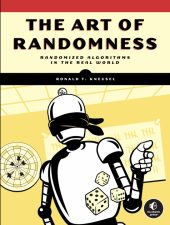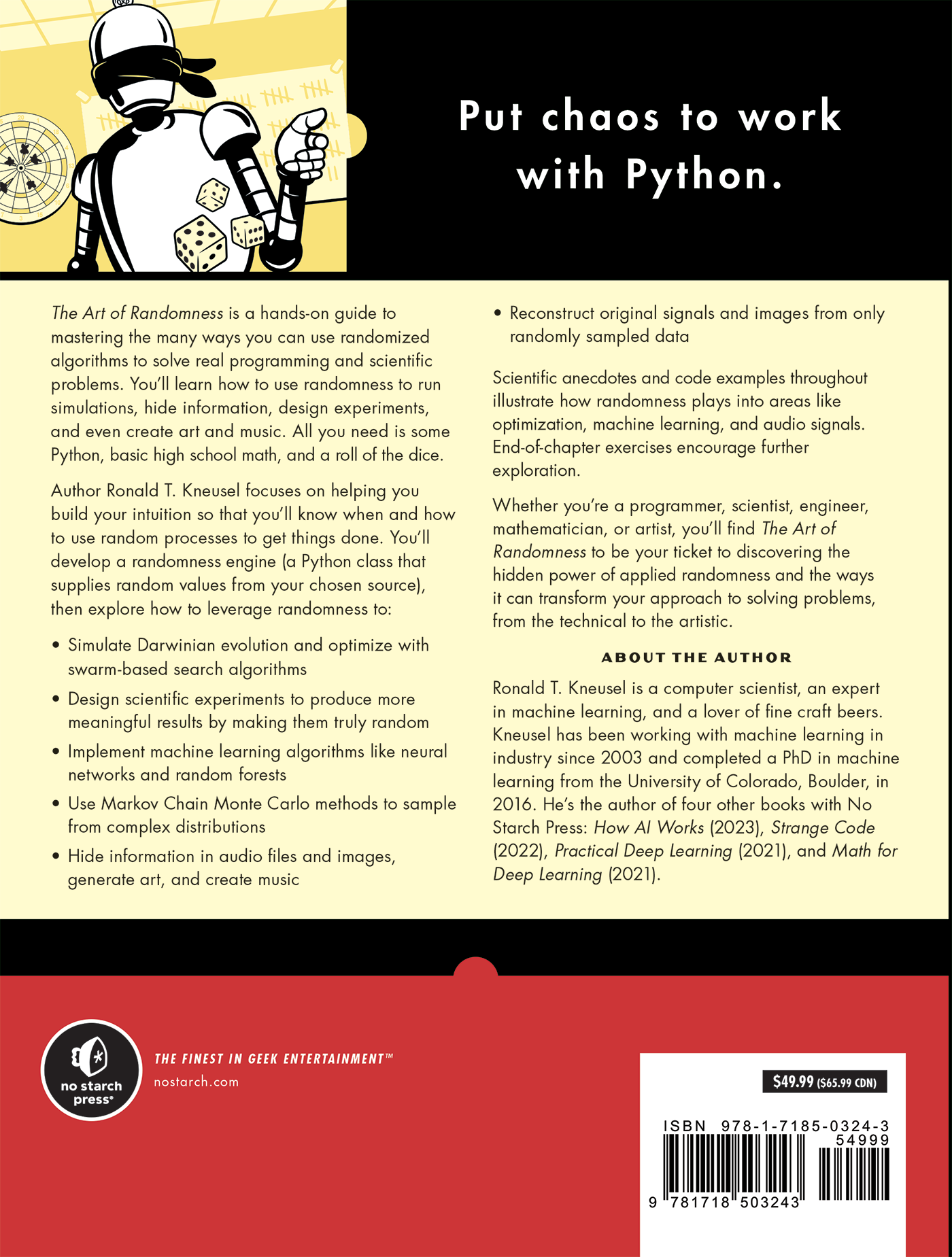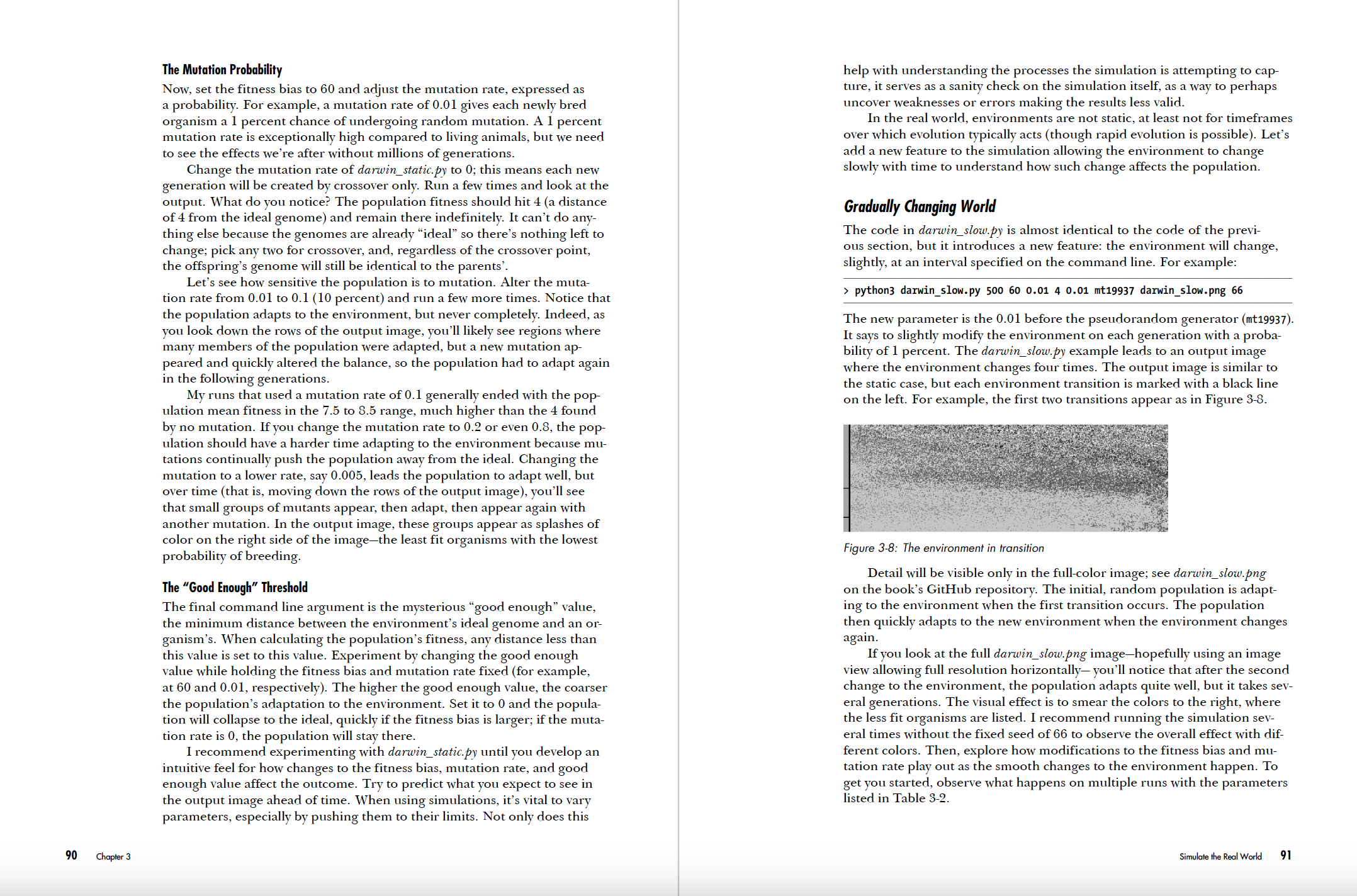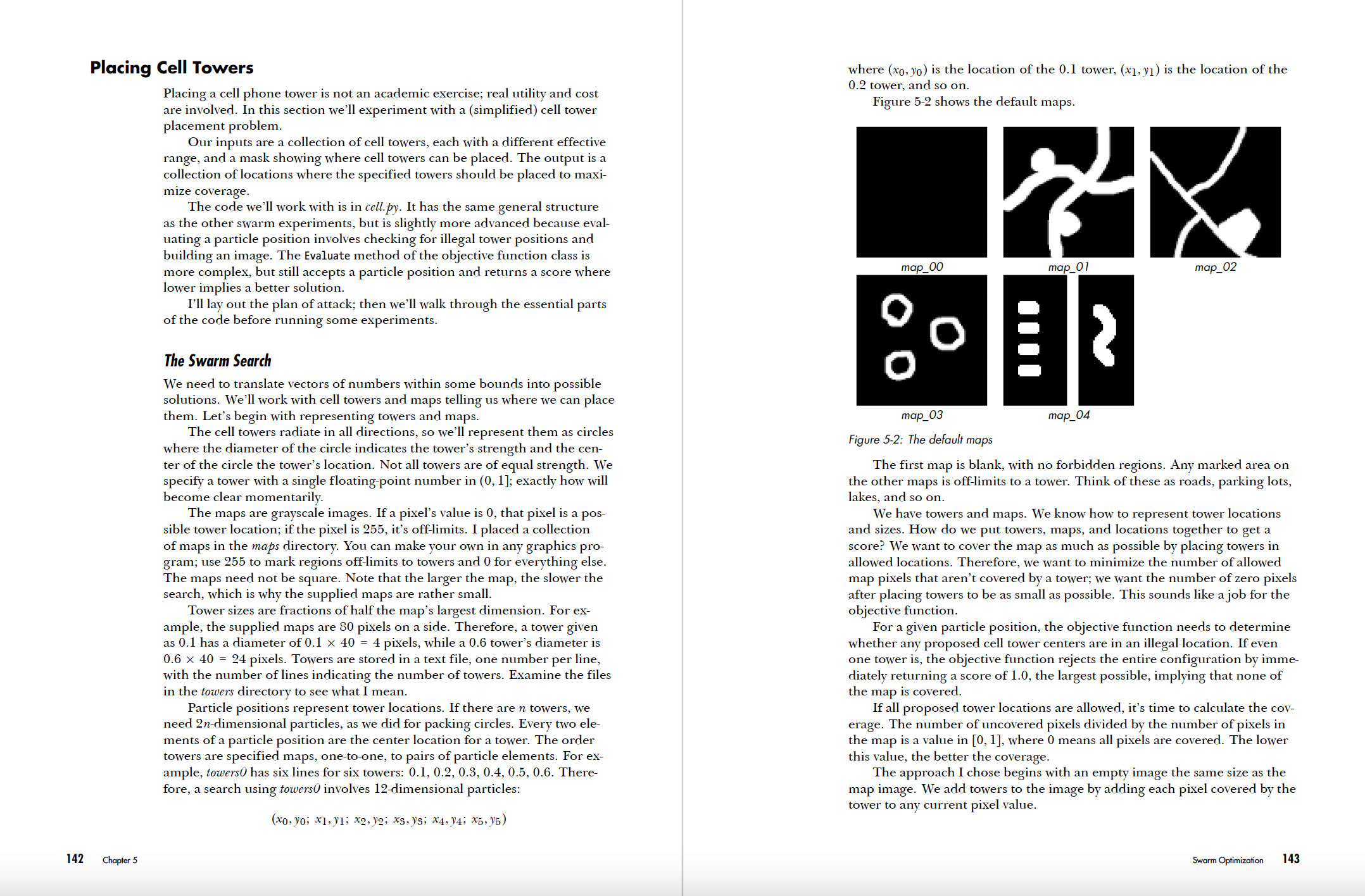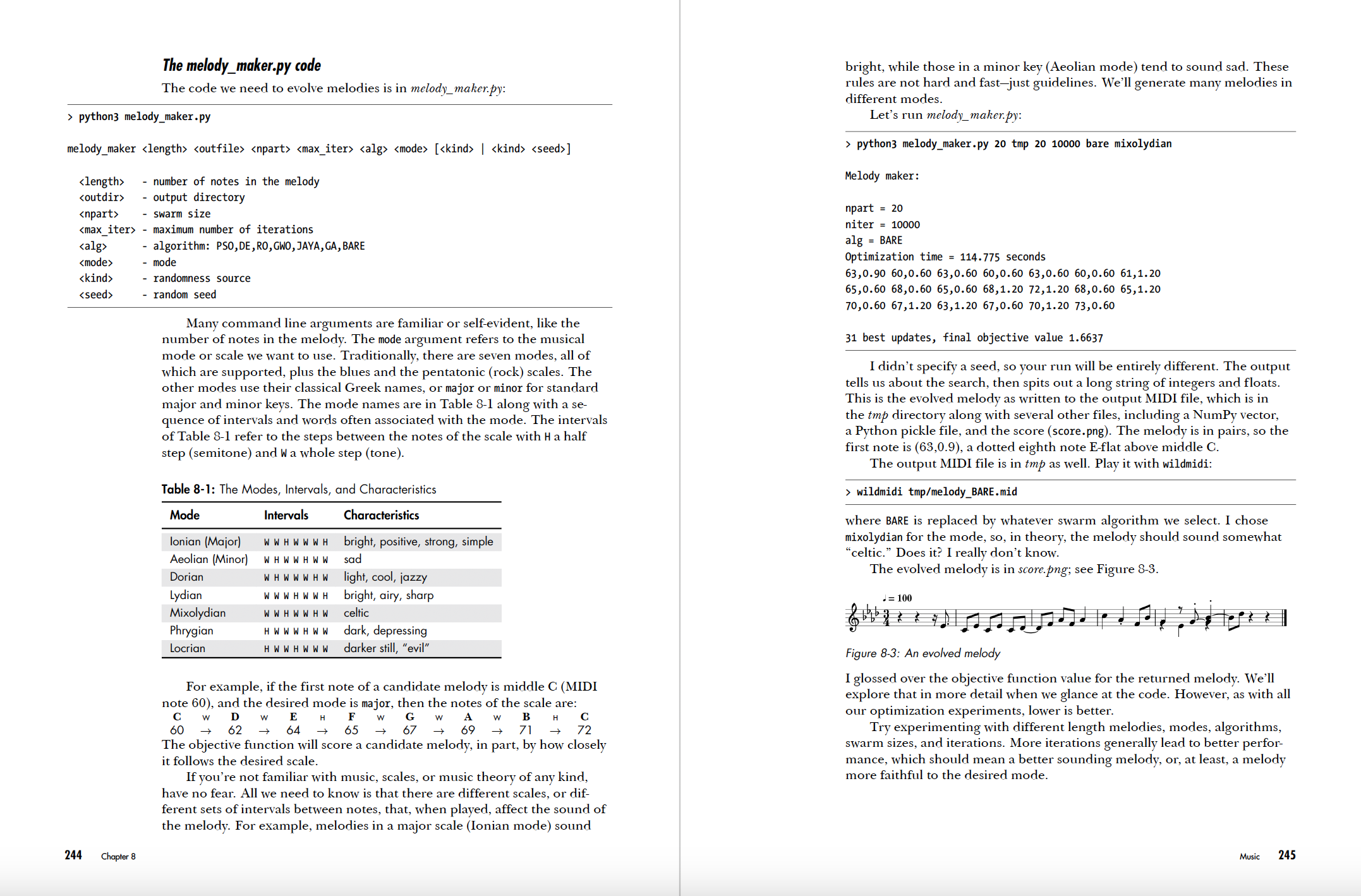Download Chapter 6: Computer Science Algorithms
Look Inside!
The Art of Randomness is a hands-on guide to mastering the many ways you can use randomized algorithms to solve real programming and scientific problems. You’ll learn how to use randomness to run simulations, hide information, design experiments, and even create art and music. All you need is some Python, basic high school math, and a roll of the dice.
Author Ronald T. Kneusel focuses on helping you build your intuition so that you’ll know when and how to use random processes to get things done. You’ll develop a randomness engine (a Python class that supplies random values from your chosen source), then explore how to leverage randomness to:
- Simulate Darwinian evolution and optimize with swarm-based search algorithms
- Design scientific experiments to produce more meaningful results by making them truly random
- Implement machine learning algorithms like neural networks and random forests
- Use Markov Chain Monte Carlo methods to sample from complex distributions
- Hide information in audio files and images, generate art, and create music
- Reconstruct original signals and images from only randomly sampled data
Scientific anecdotes and code examples throughout illustrate how randomness plays into areas like optimization, machine learning, and audio signals. End-of-chapter exercises encourage further exploration.
Whether you’re a programmer, scientist, engineer, mathematician, or artist, you’ll find The Art of Randomness to be your ticket to discovering the hidden power of applied randomness and the ways it can transform your approach to solving problems, from the technical to the artistic.

